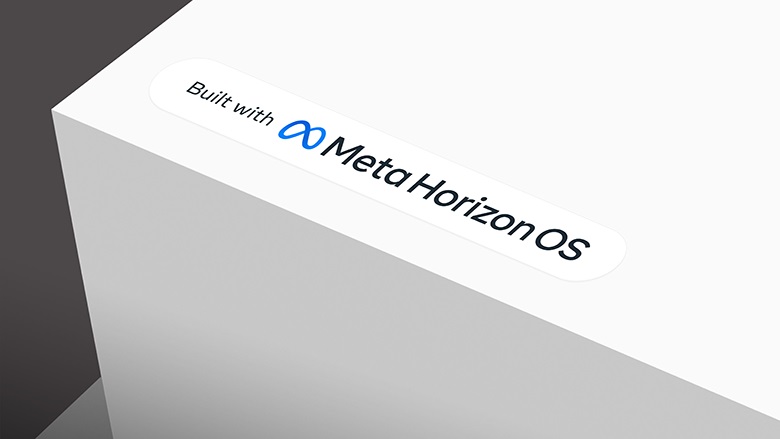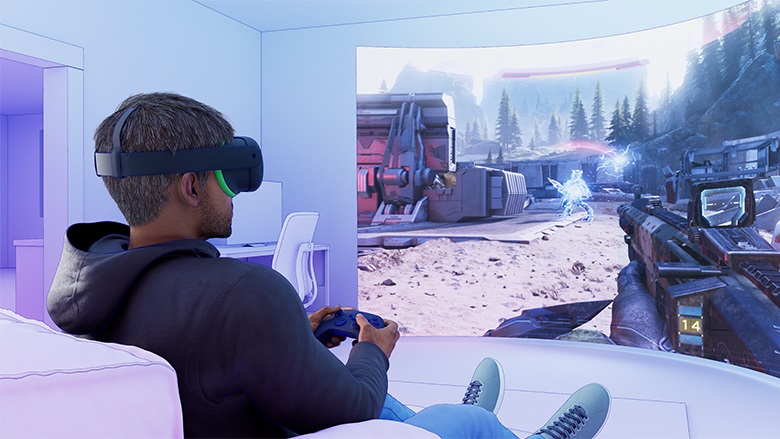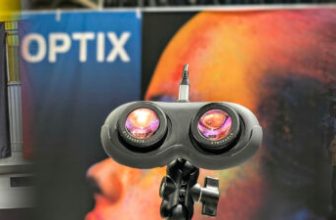
Meta has this week announced that it is advancing its commitment to an open computing platform by opening up the ‘Meta Horizon OS’ operating system powering its Meta Quest devices to third-party hardware manufacturers. The company stated that the move will make it easier for developers to build apps and reach their audiences on its platform.
Can you provide a description of Meta Horizon OS?
Meta Horizon OS is the mixed reality operating system that powers Meta’s Quest line of headsets. The OS combines the core technologies powering Meta’s mixed reality experiences with a suite of features that put social presence at the center of the platform.
Developed over ten years, Meta Horizon OS features technologies such as inside-out tracking, eye and hand tracking, and high-resolution Passthrough for an immersive mixed reality experience. The operating system is built on the Android Open Source Project.
Are there any companies that are developing devices on the Meta Horizon OS?
According to its announcement, Meta mentioned that prominent technology companies worldwide are already developing new devices on the Meta Horizon OS platform.
ASUS’ Republic of GamersASUS will utilize its expertise in gaming solutions to create a brand-new, high-performance gaming headset. S.Y. Hsu, Co-CEO at ASUS, expressed that they have been motivated by the remarkable gaming community centered around virtual and mixed reality. Recognizing the desires of avid gamers for top-notch hardware, ASUS, in collaboration with Republic of Gamers, aims to develop the next-generation gaming headset using Meta Horizon OS.
Lenovo, which already has experience co-designing Oculus Rift S, is also developing mixed reality devices for productivity, learning, and entertainment, according to Meta. Yuanqing Yang, Chair & CEO at Lenovo, stated: “Building from our past successful partnership, Lenovo is bringing together Meta Horizon OS with our leadership and innovation in personal computing to accelerate adoption of new user scenarios in mixed reality like virtual screens, remote presence, content consumption, and immersive training.”
Xbox, which teamed up with Meta last year to bring Xbox Cloud Gaming (Beta) to Meta Quest, enabling Quest users to play Xbox games on a large 2D virtual screen in mixed reality. Now, the two companies are working together again to create a limited-edition Meta Quest, inspired by Xbox.

Meta noted that all of the devices being built by the above companies will benefit from Qualcomm Technologies’ Snapdragon processors, which are tightly integrated with Meta’s software and hardware stacks, the latest of which being the XR2 Gen 2 Platform that launched with the Quest 3.
Does this imply that Meta will have a more open app ecosystem?
Meta has revealed plans to improve its app ecosystem by breaking down barriers between the Meta Horizon Store and App Lab. This will make it easier for developers to promote their software, as App Lab titles will soon have a dedicated section in the Store across all Meta devices. This change aims to make these titles more visible to a wider audience and streamline the process for developers to release their titles on Meta’s platform.
Additionally, Meta is currently working on a new spatial app framework that aims to help mobile developers adapt their applications for mixed reality environments.
Is an open future the direction towards which mixed reality is headed?
Meta’s announcement positions it as a supporter of a mixed reality environment that is more inclusive and collaborative. They emphasized the advantages for both consumers and developers in having a common platform where multiple hardware manufacturers contribute.
Meta’s approach stands in contrast to Apple’s strategy, which traditionally emphasizes a closed ecosystem with tightly controlled hardware and software integration, as is currently the case with the Apple Vision Pro. As the mixed reality market evolves, an open platform like Meta’s could be the key to driving faster innovation and adoption across the spatial computing space.







